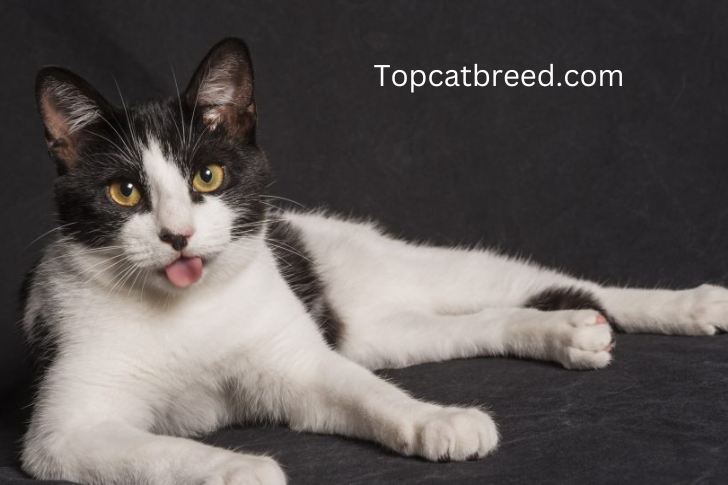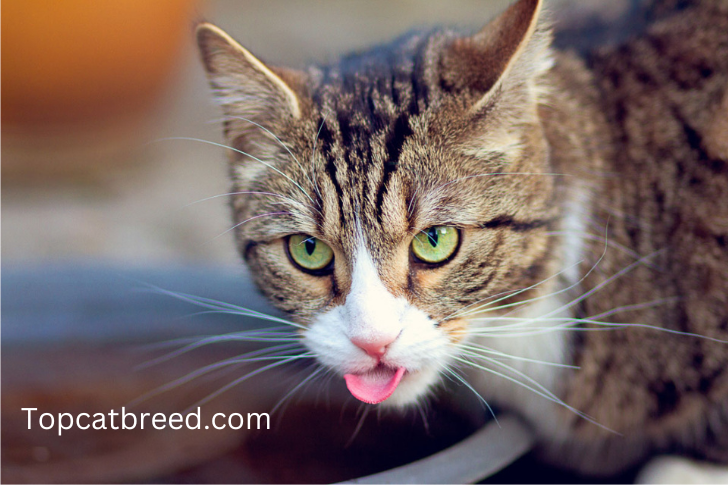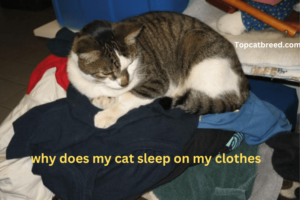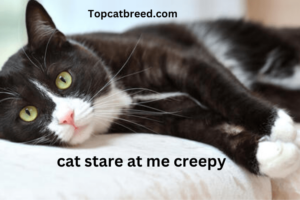Ever wondered why do cats stick their tongue out? This adorable yet curious behavior has captivated cat owners for ages. Let’s solve the secret behind it. Cats, in their endearing ways, may put their tongues out during routine grooming or to investigate tastes and aromas in the air. Occasionally, it may serve as a sign of possible problems with the teeth or oral health, requiring further investigation. This behavior can also be caused by respiratory issues, which highlights how crucial it is to comprehend your cat’s health.
There are other facets to this intriguing feline characteristic, including functions played by stress, anxiety, and genetic predispositions. That means that the next time you see your cat is “blepping,” it could be expressing a range of emotions or instincts. This investigation into the realm of feline behavior seeks to provide every cat lover with a fun and reasonable explanation for why cats put their tongues out.
10 Reasons behind why do cats stick their tongue out
1-Your Cat Might Have Dental or Oral Health Issues

One of the common reasons your cat may exhibit the behavior of sticking its tongue out is rooted in potential dental or oral health issues. Cats, like people, can get gingivitis and tooth rot. The discomfort caused by these conditions can lead to prolonged tongue exposure, which serves as both a coping mechanism and a visual indicator of their distress.
Maintaining excellent dental health in cats is critical to their general well-being. Regular veterinary check-ups are critical in recognizing and treating potential dental problems early on. Periodic dental care measures, such as brushing your cat’s teeth and administering dental treats, can help to prevent disorders that would otherwise cause extended tongue exposure. Cat owners who prioritize their feline pets’ oral health can ensure that they live a comfortable and pain-free life.
2- Natural Grooming Behavior
A second crucial reason why do cats stick their tongues out is tied to their natural grooming behavior. Cats maintain a thorough self-care routine, grooming them by licking their fur. Brief tongue protrusions during grooming sessions are quite normal and a necessary aspect of their self-care.
This grooming technique is therapeutic and calming for cats, in addition to keeping their fur clean. The repetitive process of licking has a calming effect, which contributes to their emotional well-being. Recognizing and respecting this critical component of feline behavior helps cat owners realize the importance of grooming in their pets’ lives, stressing the role it plays in their general well-being.
3- They Could Be Adjusting to a New Texture or Taste
Third important reason behind why do cats stick their tongue out might be their adjustment to a new texture or taste. Cats, as naturally curious creatures, use their tongues to explore and adapt to new substances in their surroundings or diet. The act of extending their tongues out becomes a sensory experience, allowing them to comprehend and adjust to something new.
Cat owners can actively encourage this adaptive behavior by including a variety of textures and flavors in their cat’s diet. Introducing new and diverse food selections increases their sensory experiences while also stimulating their taste buds. This adds to a more interesting mealtime experience, encouraging a healthy and inquisitive attitude toward food.
4-Heat regulation
fourth important reason for cats sticking their tongues out is heat regulation. Cats don’t sweat like humans, so they resort to panting to cool down. Sticking their tongues out helps to dissipate heat, which is an important physiological response for regulating body temperature, especially in warmer weather?
This natural cooling process is especially noticeable during periods of high environmental heat or when performing hard activities. Recognizing and appreciating this fundamental cooling mechanism helps responsible cat owners to create an environment that supports our pets’ natural activities while also ensuring their comfort in a variety of settings.
5- Your Cat Has Respiratory Issues

A further crucial reason contributing to extended tongue exposure in cats may be indicative of underlying respiratory issues. When a cat is having trouble breathing, they may turn their tongues out to help with airflow. This habit is a visual cue that cat owners should watch closely for changes in their pets’ respiratory patterns.
Cats with respiratory problems might have everything from respiratory infections to asthma. If the tongue protrusion is continuous and accompanied by wheezing or difficult breathing, immediate veterinarian care is required. Maintaining the respiratory health of feline friends requires early detection and treatment of respiratory issues. Medication regimens and environmental modifications, among other treatment strategies, can help reduce respiratory distress and provide a healthier and more comfortable life for cats.
6- Taste and Smell Exploration
An additional important reason why do cats stick their tongues out revolves around their innate curiosity for taste and smell exploration. Cats use their tongues for information gathering about their surroundings in addition to grooming. Their ability to detect and evaluate smells in the atmosphere is enhanced by sticking their tongues out, which broadens their perspective of the environment.
Their curiosity and innate instincts are demonstrated by this conduct. Cat owners can enjoy the sensory-rich experiences that mold their pets’ sense of their environment by watching this exploration. Their general well-being and mental contentment are enhanced when safe sensory stimulation is provided, such as through interactive play, the introduction of new odors, or simply letting them explore their surroundings.
7- Your Cat Is Blepping
Seventh common reason behind your cat sticking its tongue out is when they are “blepping”. The adorable and charming act of a cat letting its tongue stick out a little—often unintentionally—is known as “blepping.” This is a harmless action that can happen while you’re sleeping or just unwinding. Although blepping may appear to be a common and playful habit, cat owners must be able to distinguish between blepping and possible underlying health issues.
Blepping is a common sign of satisfaction and relaxation in comfortable and pleased cats. This behavior highlights each cat’s unique personality and gives their manner a delightful, whimsical touch. But it’s important to pay attention to how often and how long the blepping occurs. If the tongue protrusion is severe or continuous, it may indicate a health concern that needs to be investigated further.
8- Stress or Anxiety
An important reason why do cats stick their tongue out out is stress or anxiety. Cats are sensitive creatures, and changes in their environment, routine, or the introduction of new elements can lead to stress. Cats may display a variety of behaviors in reaction to elevated stress levels, such as thrusting out their tongues. This might be an important clue for cat owners to identify and deal with possible stressors in their cat’s life.
Cats can experience less stress and anxiety by having regular routines, providing familiar objects, and creating a peaceful and stable environment. Moreover, offering engaging toys and quiet areas might operate as constructive diversions. Finding and treating the underlying causes of stress improves the cat’s general health and lessens behaviors like prolonged tongue exposure that are linked to elevated stress levels.
9- Genetic Predisposition
Another crucial reason behind cats sticking their tongues out is genetic predisposition. Certain cat breeds are more prone to exhibiting this behavior due to their genetic makeup. With their unique facial shapes, breeds like the Persian or Exotic Shorthair may naturally have their tongues showing. Cat owners are better able to recognize and accept these distinctive traits as a necessary part of their feline companion’s individuality when they are aware of the genetic tendencies of particular breeds.
It’s vital to ensure that any changes in tongue exposure align with your cat’s typical behavior, even if certain habits are influenced by genetic predisposition. Regularly observing your cat and familiarizing yourself with its routine will assist in distinguishing between behaviors likely to be genetically determined and those that might signal potential health issues.
10- They Got Food Jammed Between Their Teeth
Last reason of a cat sticking its tongue out is the presence of food jammed between their teeth. Because cats are such meticulous groomers, there is a chance that during their grooming routine, they will come across situations in which small food particles become stuck between their teeth. In an effort to remove the debris, cats may stick their tongues out.
Owners can help prevent this common occurrence by providing dental care or cat-friendly dental treats. You can reduce the likelihood of food particles causing discomfort and encouraging prolonged tongue exposure by brushing your cat’s teeth with feline toothpaste and providing appropriate toys or treats designed to promote dental health.
Are cats happy when they stick their tongue out?

When cats stick their tongues out, it does not always indicate happiness. Cats use this activity to show a variety of feelings, including happiness and peace of mind. “Blepping” or temporary tongue protrusion is commonly connected with comfort. However, persistent tongue exposure may indicate underlying health problems or stress.
Cat owners should think about the context, frequency, and length of this behavior. Regular veterinary check-ups and understanding the cat’s overall habits help to ensure their health. While a blepping cat can be endearing, correctly understanding it needs a thorough examination of the cat’s overall health and surroundings.
CONCLUSION
In conclusion, understanding the complex yet endearing language of a cat that sticks out. Its tongue shows a variety of explanations, ranging from stress markers to hereditary habits. Although certain actions, such as “blepping,” give a playful element to a cat’s face, cat owners need to exercise caution. Knowing the subtleties of their cats’ behavior provides a stronger attachment. As well as the capacity to quickly handle any possible health issues. Acknowledging the uniqueness of every cat’s behavior improves the human-cat bond and builds a friendship based on compassion and understanding.




